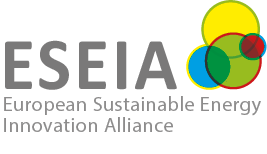Climate Needs Urgent Attention: Plant a Tree for Every Kid
The European Research and Innovation Days held in Brussels, BE, 24-26 September 2019 left many interesting presentations lead by experts from all over Europe. Such was the case of Hans Joachim Schellnhuber, Director of the Potsdam Institute for Climate Impact Research (PIK) and chair of the EC High Level Panel on Decarbonisation Pathways, who stressed the climate emergency and the need for putting new partnerships in place and review growth models. The Physicist presented the results of his work to the parallel session on ‘How to Make our Planet Healthy Again’ during the Policy Conference and pointed the importance of a systemic sustainability approach addressing all areas of society.
Schellnhuber explained the role of place-based systemic innovation and described the case of the Lausitz region, a heavily carbon-intensive region in Germany. To transition out of coal, the region needed a multi asset approach investing in RES, new architecture and planning, digital production, as well as arts and social sciences. To other urgent environmental issue as the rain forests dramatically burning, Schellnhuber suggested to try new approaches as leasing forests and that the EU compensates countries for their loss of revenue. He considers the transition to sustainability as the next age of enlightenment and, therefore, he also suggested planting a tree for every kid.
Also during this parallel session, Maros Sefcovic from the European Commission called the attention to one of the main next challenges: achieving a just transition for all. The new von der Leyen Commission had set itself the target to come up with a new EC Climate law in the first 100 days. We also need new ways of working such as cooperation and crosscutting activities. Jobs and Growth, for example, need to be friendly to climate in line with Horizon Europe efforts. Ultimately, Sefcovic said, the climate transition is a narrative that is framing all other narratives.
Commissioner Carlos Moedas reminded as well of Ferdinand Magellan the Portuguese explorer who put scientists together with navigators in the XVI century. During the session ‘The Missions: Let’s Get Started’, he stressed how Europe needs to join forces and get people excited to contribute to our future. Particularly, Europe wants citizens to get involved in setting concrete missions. With that aim missions need to be transformed into something easy to understand building mission boards and assemblies with diverse people.
Finally, Mariana Mazzucato from the University College London, presented her report on missions for Horizon Europe and said that although people participate in the decision-making process they do not get any benefit. Collaborate in new ways and to nurture bottom-up initiatives ensuring a fair transition as stipulated by the von der Leyen Commission, a Green New Deal for Europe, is urgent. Missions and innovation strategies require a participative exercise defining challenges for both industry and society.
More Information
eseia Article ‘Speeding Up energy Transition’
Contact Person
Brigitte Hasewend, eseia Director – brigitte.hasewend@eseia.eu

